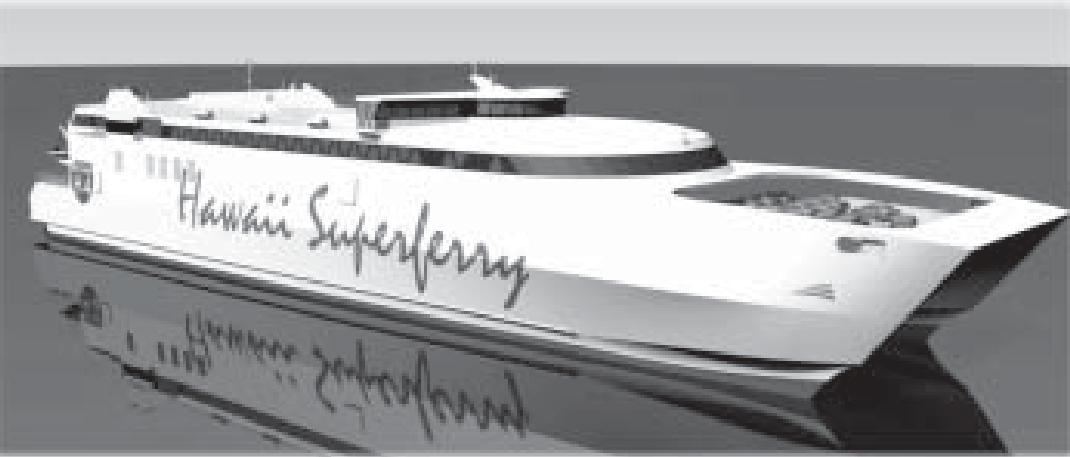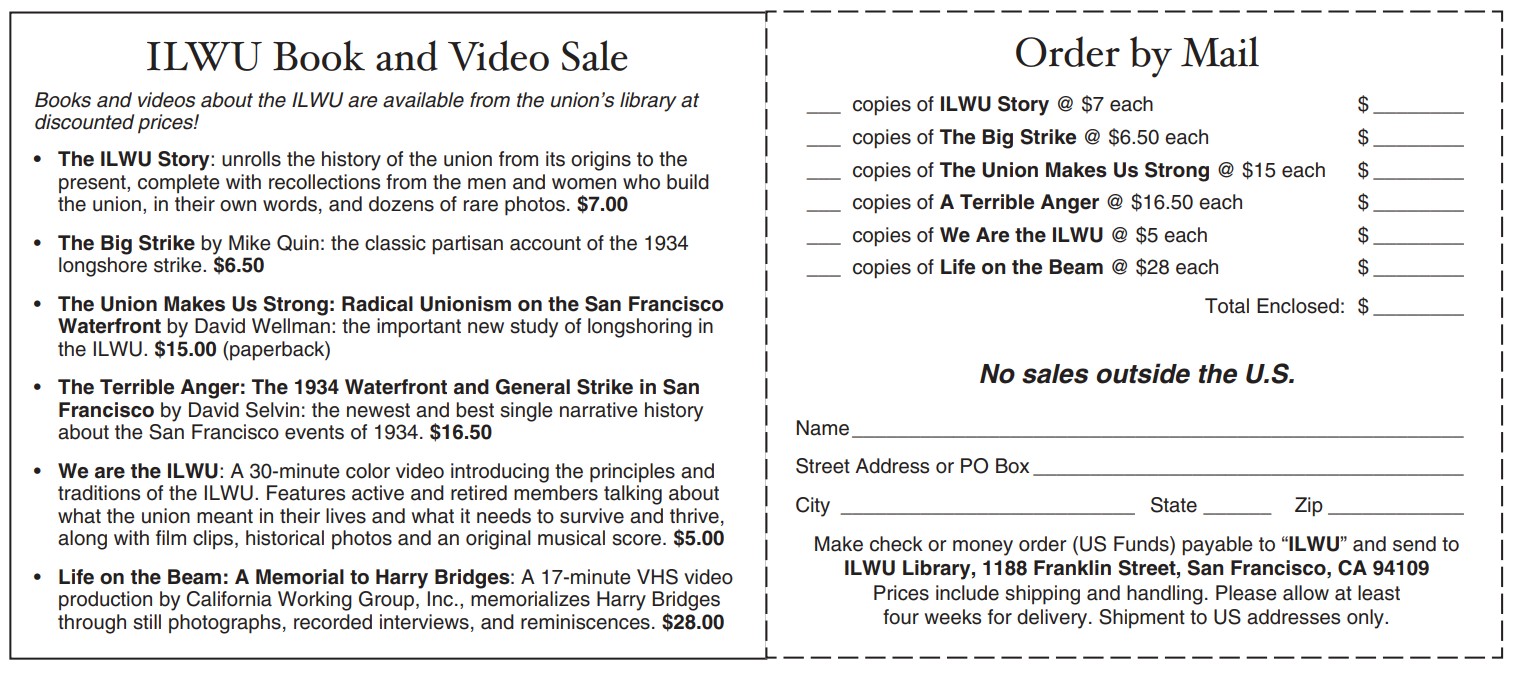Late 2006 is the target date set by the Hawaii Superferry company to begin operating an inter-island passenger and freight ferry service with the first of two high-speed, giant catamarans. The twin-hulled catamarans are as long as a football field and will have the capacity to carry 900 passengers and 285 cars (or 20 trucks and 65 cars). Travel time between Honolulu and Maui or Kauai would be about three hours and 4-5 hours from Honolulu to Kona.
The roll-on and roll-off feature of these ships would allow trucks loaded with freight such as bread or produce to be driven on and off the ships. This could take a lot of business away from Young Brothers which presently moves inter-island cargo by barge. The superferries would also compete with Young Brothers for the limited space available on neighbor island ports.

These and other concerns led the ILWU to form a superferry ad hoc committee made up of members from the longshore division. The committee will monitor the situation, gather the latest information, and give periodic reports to ILWU members. The members of the committee are Wesley Furtado, Nathan Lum, Jonathan Kaaihue, Kenny Ho, Byron Kaohi, and David Dutro.
A series of informational meetings have been scheduled for each Division where the committee will report on their December 2004 meeting with Hawaii Superferry executives. (Big Island on February 23, Maui on March 9, Kauai on March 23, and Oahu on April 12.)
The meetings are open to all ILWU members and retirees. Please call your ILWU Division Office for the time and locations of these meetings. ◆
Sugar: Ethanol plants are on a tight schedule
On April 1, 2006, gasoline sold in the State of Hawaii must be blended with 10 percent of ethanol. This is the result of a law passed in 1994 that was intended to protect the environment by using more renewal resources such as ethanol. It was also intended to give the local sugar industry a boost since ethanol can be easily produced from sugar byproducts such as molasses and bagasse.
When the law goes into effect, about 3 million gallons of ethanol will be needed each month to blend with gasoline. The ethanol can be imported, but because the law also provides tax incentives and credits to encourage local production, a number of companies are moving ahead with plans to construct and operate ethanol plants in Hawaii.
On Kauai, Gay & Robinson is working with Worldwide Energy Group to build an ethanol plant in Kaumakani. The site is being prepared and should be producing ethanol on schedule. The company eventually expects to produce 15 million gallons with plantation molasses plus imported molasses.
HC&S is working with Maui Ethanol LLC, which plans to build a $20 million plant in Pu‘unene that would produce 8 million gallons of the fuel from the 73,000 tons of molasses produced by HC&S each year. The company is now applying for permits and hopes to begin construction in August or September and be in production by April 1, 2006.
On the Island of Hawaii, there are plans to produce ethanol from imported corn and to sell the corn mash byproduct as cattle feed.
On Oahu, where the need for ethanol will be highest, a company called Oahu Ethanol plans to build a 15 million gallon per year plant and produce ethanol with imported sugar.
All of these ethanol plans are on a tight schedule to meet the April 2006 deadline, but the deadline is flexible. Gasoline suppliers can get 90-day exemptions from the state, which can be renewed, if sufficient quantities of competitively-priced ethanol are not available or in the event of any other circumstance which would cause undue hardship. ◆
Members okay agreement with G&R
Gay & Robinson Sugar Company members approved a new three-year contract which runs until January 31, 2007. There will be no increase in wages in the first year, but the contract may be reopened on wages in April 2006.
All benefits are maintained at current levels, except for an increase in the cost of water for those members living in plantation housing.
The company and union will meet to work out other problems dealing with safety, housing, job upgrades, and outside contracting. ◆

